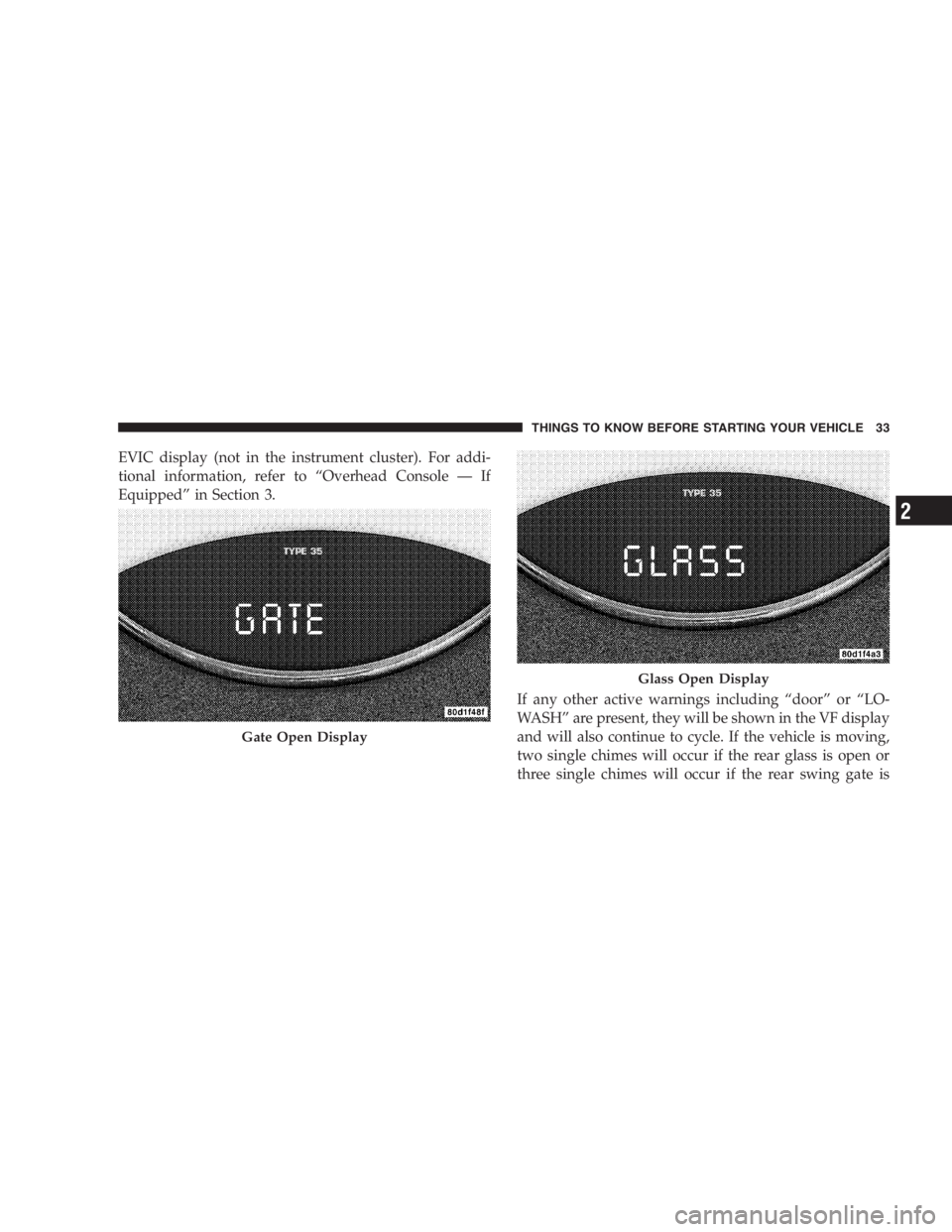tow JEEP LIBERTY 2005 Owners Manual
[x] Cancel search | Manufacturer: JEEP, Model Year: 2005, Model line: LIBERTY, Model: JEEP LIBERTY 2005Pages: 1272, PDF Size: 11.21 MB
Page 33 of 1272

Overfilling or underfilling the crankcase will cause
aeration or loss of oil pressure. This could damage
your engine.
Change Engine Oil
Road conditions as well as your kind of driving affect the
interval at which your oil should be changed. Check the
following to determine if any apply to you:
•Day or night temperatures are below 32°F (0°C)
•Stop and go driving
•Extensive engine idling
•Driving in dusty conditions
•Short trip driving of less than 10 miles (16.2 km)
•More than 50% of your driving is at sustained high
speeds during hot weather, above 90°F (32°C)
•Taxi, Police, or delivery service (commercial service)
•Trailer towing
•Off-road or desert driving
MAINTAINING YOUR VEHICLE 313
Page 552 of 1272

Internal damage to the transfer case will occur if a
front or rear wheel lift is used when recreational
towing.
NOTE:The transfer case must be shifted into N (Neu-
tral), and the transmission must be shifted into P (Park)(for automatic transmission) or into any forward gear (for
manual transmission) for recreational towing.
Shifting Into Neutral (N)
Use the following procedure to prepare your vehicle for
recreational towing.
CAUTION!
It is necessary to follow these steps to be certain that
the transfer case is fully in N (Neutral) before
recreational towing to prevent damage to internal
parts.
Page 554 of 1272

You or others could be injured if you leave the
vehicle unattended with the transfer case in the N
(Neutral) position without first fully engaging the
parking brake. The transfer case N (Neutral) position
disengages both the front and rear driveshafts from
the powertrain and will allow the vehicle to move
regardless of the transmission position. The parking
brake should always be applied when the driver is
not in the vehicle.
CAUTION!
Do not use a bumper mounted clamp-on tow bar on
your vehicle. The bumper face bar will be damaged.
Page 563 of 1272

Raising the vehicle higher than necessary can make
the vehicle less stable and cause an accident. It could
slip off the jack and hurt someone near it. Raise the
vehicle only enough to remove the tire.
A loose tire or jack, thrown forward in a collision or
hard stop could endanger the occupants of the ve-
hicle. Always stow the jack parts and the spare tire in
the places provided.
Page 566 of 1272

Do not attempt to push or tow your vehicle to get it
started. Unburned fuel could enter the catalytic
converter and, once the engine has started, ignite and
damage the converter and vehicle.Tow hooks are for emergency use only, to rescue a
vehicle stranded off road. Do not use tow hooks for
tow truck hookup or highway towing. You could
damage your vehicle. Tow straps are recommended
when towing the vehicle, chains may cause vehicle
damage.
WARNING!
Stand clear of vehicles when pulling with tow
hooks. Tow straps and chains may break, causing
serious injury.
Page 578 of 1272

Overfilling or underfilling the crankcase will cause
aeration or loss of oil pressure. This could damage
your engine.
Change Engine Oil
Road conditions as well as your kind of driving affect the
interval at which your oil should be changed. Check the
following to determine if any apply to you:
•Day or night temperatures are below 32°F (0°C)
•Stop and go driving
•Extensive engine idling
•Driving in dusty conditions
•Short trip driving of less than 10 miles (16.2 km)
•More than 50% of your driving is at sustained high
speeds during hot weather, above 90°F (32°C)
•Taxi, Police, or delivery service (commercial service)
•Trailer towing
•Off-road or desert driving
MAINTAINING YOUR VEHICLE 313
Page 710 of 1272

Do not attempt to push or tow your vehicle to get it
started. Unburned fuel could enter the catalytic
converter and, once the engine has started, ignite and
damage the converter and vehicle.Tow hooks are for emergency use only, to rescue a
vehicle stranded off road. Do not use tow hooks for
tow truck hookup or highway towing. You could
damage your vehicle. Tow straps are recommended
when towing the vehicle, chains may cause vehicle
damage.
WARNING!
Stand clear of vehicles when pulling with tow
hooks. Tow straps and chains may break, causing
serious injury.
Page 737 of 1272

Raising the vehicle higher than necessary can make
the vehicle less stable and cause an accident. It could
slip off the jack and hurt someone near it. Raise the
vehicle only enough to remove the tire.
A loose tire or jack, thrown forward in a collision or
hard stop could endanger the occupants of the ve-
hicle. Always stow the jack parts and the spare tire in
the places provided.
Page 836 of 1272

Internal damage to the transfer case will occur if a
front or rear wheel lift is used when recreational
towing.
NOTE:The transfer case must be shifted into N (Neu-
tral), and the transmission must be shifted into P (Park)(for automatic transmission) or into any forward gear (for
manual transmission) for recreational towing.
Shifting Into Neutral (N)
Use the following procedure to prepare your vehicle for
recreational towing.
CAUTION!
It is necessary to follow these steps to be certain that
the transfer case is fully in N (Neutral) before
recreational towing to prevent damage to internal
parts.
Page 838 of 1272

You or others could be injured if you leave the
vehicle unattended with the transfer case in the N
(Neutral) position without first fully engaging the
parking brake. The transfer case N (Neutral) position
disengages both the front and rear driveshafts from
the powertrain and will allow the vehicle to move
regardless of the transmission position. The parking
brake should always be applied when the driver is
not in the vehicle.
CAUTION!
Do not use a bumper mounted clamp-on tow bar on
your vehicle. The bumper face bar will be damaged.